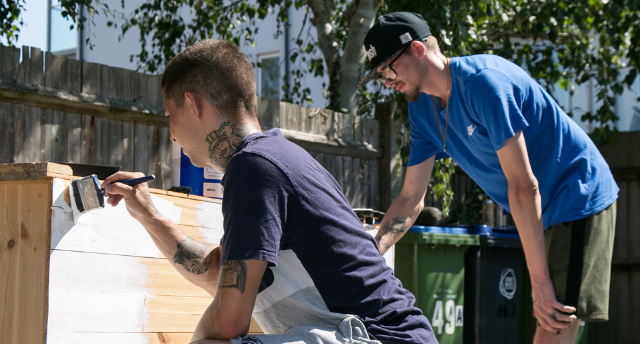
How the private rented sector can help unlock the Freedom2Work – Rentstart
It’s our 20th birthday in October this year, marking 20 years of using the private rented sector as a route out of homelessness. With high levels of homelessness sadly remaining consistent since Rentstart began, we knew that solutions needed to be found outside of the social systems in the UK that have not been comprehensive enough to help many people spiralling towards, or entrenched in, homelessness. While unlocking privately rented homes has always been the core of what we’ve done, when we developed Freedom2Work with Commonweal, we saw measurable long-term benefits from an integrated programme that could sit on existing models like ours.
Our model has consisted of two facets. On the property side, we manage bedspaces and get to know landlords offering them one or more of: guaranteed rent, deposit bond, viewings and contracts, inspections, and a repair service. On the client side, we’ve always taken a person-centred approach, helping variably with property searches, viewings, rent-in-advance, deposits, check ins, furniture, starter packs, food parcels. These actions may sound familiar to you as charities with similar goals to us will typically use a combination of them. Freedom2Work bolts on to this model by creating a measurable, intensive system aimed at building resilience, savings, and better housing security.
The goal of Freedom2Work is independence and moving beyond the cycle of homelessness. Upon signing up to Freedom2Work, clients make a commitment to save money with us, instilling a saving attitude as a top financial priority. This could be as little or as much as somebody could afford, with many clients opting to save a small £5 each month; however, Freedom2Work match funded whatever clients saved. A total of £9,825 was saved by the participants, with multiple people being able to use the match funding to secure places of their own to rent. The Freedom2Work bolt on also made employment support a priority for its participants. Over the course of five years of the project, 75 out of 96 people have maintained or started employment.
Freedom2Work has obviously proven an effective client-focused bolt on. Notwithstanding, it has also proved beneficial to society from a financial point of view: a powerful tool for small organisations such as us to gain confidence from our local authorities. De Montfort University published a study of Freedom2Work’s impact using Crisis’ Making it Count tool as a measure of cost to society. They found over three of the project’s years, Rentstart had saved society £1,301,144.
One of the most important outcomes from Freedom2Work has been its reliability. Despite recent moments of optimism for those of us working to support vulnerable people into housing, such as shelter’s court victories which help set the precedent for benefits discrimination, and Spareroom removing their benefits filter, the prospect of finding a home in the private rented sector remains a challenge for those who have been homeless or rely on Universal Credit. A recent study from the Centre for Homelessness Impact shows as much, surveying over 2700 private landlords in England and Wales they found landlords self-reported likelihood of renting to someone in receipt of Universal Credit remains ‘low’. Furthermore, they found the most appealing offer as perceived by landlords is the confirmation that they would reliably receive their rent. While the tide is changing, projects like Freedom2Work could earn trust from private landlords and set the scene for a brighter renting future.
For these reasons, we are looking for initial charity partners to adopt Freedom2Work. The more our results are replicated, the more people are creating resilient futures out of difficult circumstances. We hope that the effort we have put in, as well as the robust measures that have been undertaken on the project, have forged something that fits and compliments the brilliant work others are doing in our joint fight to end homelessness.

“As we come out of what might be our final Covid-19 lockdown, we feel Freedom2Work is coming into its next phase. We now know confidently what we can deliver, and we want to do it in a much broader way, to see it make an impact people’s lives outside of our initial cohort, and even help others make it happen outside our local area.
The phase we’re stepping into is working out how to make Freedom2Work a real replicable model which will create security for vulnerable people working with organisations like us across the country.”
Helen Watson – CEO, Rentstart
